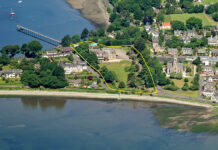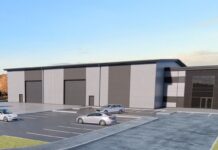
NOISY road traffic in residential areas can lead to an increased chance of high blood pressure, a University of Glasgow study carried out in Glasgow has found.
The university said the findings could support local authorities in planning and managing the built environment, as well as affording opportunities for tools to be developed to improve public health decision making.
Traffic noise at different frequencies and registered hypertension cases were monitored in a number of locations in urban Glasgow as part of the study. It found a ‘significant’ correlation between noise, air pollution, and hypertension within high-traffic-flow residential areas.
The learning institute said that the research provides an ‘important’ case study for an increasing international evidence base to support future environment policy and support public health measures – such as setting stricter noise guidelines and improving technology on quieter vehicles and urban design.
Professor Andrew Hursthouse, lead supervisor of UWS’s school of computing engineering and physical sciences, said, “This work is the result of an interdisciplinary collaboration with Mr Jan Miller, HLS and Dr Daniel Boakye, formerly HLS, to support the efforts of PhD student Wisdom Adza, highlighting the potential of joining skills to address societal problems.
“The increasing evidence highlighting environmental conditions and public health impacts a game-changer when it comes to the prevention of hypertension at individual and societal level.”
Mr Wisdom Adza, UWS PhD student, and main investigator of the study, added, “A review of this area identifies opportunities for including broader indicators in public health policy.
“Although further investigation is needed, this should not delay actions to recognise that traffic noise is a potential risk factor for hypertension, and heart diseases more generally, in the development of clinical guideline and environmental policy.”








